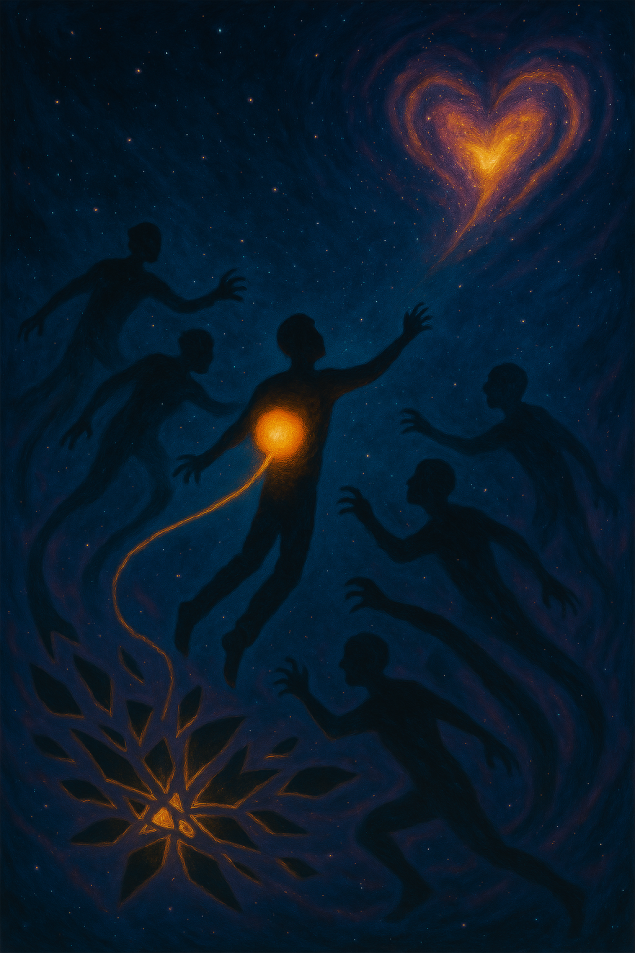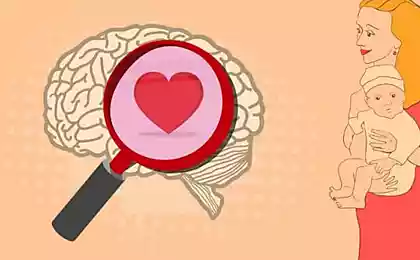170
How to understand yourself and your true desires, if you are used to trying for others

Your true self is waiting for you to free yourself from others’ expectations and find your way.
Living for others is a noble trait, but what happens when you lose yourself in the process? Many of us for years honed the art of pleasing others: family, friends, colleagues. We sacrifice our desires to make others happy, and over time we cease to understand what we want. But even if you’re used to putting others first, you can still get back to yourself, discover your true aspirations, and start living an authentic life. This article is your guide on a journey of self-discovery, backed up by science, practical advice, and inspiring stories.
Why do we give ourselves to others?
To find our way to ourselves, it is important to understand why we so often live for others. Psychologists associate this with a process known as social conditioning. From childhood we are taught to be useful, attentive, to sacrifice ourselves for the common good. This is inherent in culture, upbringing and even biology – a person as a social being strives for harmony in a group. But when this habit becomes dominant, it can drown out our inner voice.
According to a study by the American Psychological Association, more than 60 percent of people routinely suppress their needs to meet society’s expectations. This creates an altruistic paradox: we help others but lose ourselves. Recognizing this dynamic is the first step towards change.
How to Hear Yourself: Practical Steps
Self-knowledge is not a luxury, but a necessity for a full life. Here are some specific steps to help you understand your true desires:
- Keep a journal.: Take 10-15 minutes each day to record your thoughts and feelings. Ask yourself, “What makes me happy?” and “What makes me angry?” Over time, you will begin to notice patterns.
- Practice mindfulnessMeditation or simple breathing exercises will help you slow down and focus on your inner sensations. Science confirms that regular meditation increases self-awareness.
- Listen to your body.: Physical reactions — fatigue, tension, joy — often speak more about our hidden desires than words. Pay attention to what energizes you and what drains you.
- Run experiments.: Try new courses, hobbies, travel. It doesn’t cost much, but it can open up unexpected passions.

Silence and nature help you hear your inner voice through self-reflection.
Overcoming obstacles
On the way to yourself, you will encounter barriers: fear of judgment, guilt, the habit of being “good.” These emotions are normal but can be overcome. The key is self-compassion. Imagine comforting a friend: “You have a right to be happy.” Now tell yourself that.
Another obstacle is the inability to say no. Start small: refuse small requests that weigh on you. This will not make you selfish, but will make room for your own goals.
The Story of Inspiration: The Way of Mary
Maria, a 42-year-old teacher, devoted her whole life to her students and family. She loved her job, but one day she realized she couldn’t remember the last time she did something for herself. Starting with a simple walk alone, she discovered a passion for photography. Today, Maria holds exhibitions of her works, balancing between caring for loved ones and creativity. "I haven't stopped being a mom or a teacher," she says, "but now I'm just myself."

Mary found herself through photography, proving that it is never too late to follow her wishes.
Long-term benefits of self-knowledge
When you understand your true desires, life becomes not just tolerable, but full of meaning. You stop wasting energy on things that don’t nourish you and find the strength to do things that really matter. Moreover, as you become happier, you are more supportive of others – it is a vicious circle of goodness.
Science confirms that people who live in harmony with themselves are less likely to suffer from burnout and depression. A National Institutes of Health study found that self-awareness correlates with high levels of life satisfaction.
Conclusion
Even if you are used to living for others, you can return to yourself. It doesn’t mean to leave everything and go to the mountains (though why not?). It means giving yourself permission to be important. Start small: turn off your phone for half an hour, go for a walk, think about what you care about. Your true desires are already within you, you just need to hear them.
Glossary
Social conditioning The process of forming behavior and beliefs under the influence of society and culture.
The altruistic paradox A situation where helping others harms your own well-being.
Self-compassion Be kind to yourself, especially in times of difficulty.
Why it’s important to follow the “no contact” rule after a breakup
10 habits of balanced people that are worth developing























